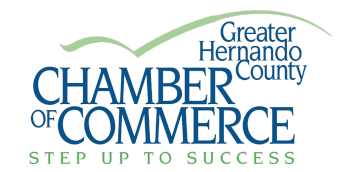Small business owners have a lot going on. In addition to running the day-to-day operations of their businesses, they also have to assume a lot of other company positions, from marketing and sales to HR and finance. It's no wonder, then, that financial mistakes are all too common. To help you avoid making some costly errors, the Greater Hernando County Chamber of Commerce put together a list of the ten most common financial mistakes small business owners make — and how to avoid them.
1. Poor Budgeting Habits
One of the most common financial mistakes small business owners make is not budgeting properly. Without a budget in place, it's difficult to track expenses and revenue, which can quickly lead to cash flow problems. To avoid this, be sure to create a detailed budget for your business and stick to it as closely as possible.
2. Inefficient Invoicing
Another mistake small business owners often make is invoicing inefficiently. This can include things like not sending invoices out in a timely manner or not including all the necessary information (e.g., payment terms, discount deadlines, etc.). Avoid this by creating a system for invoicing that works for you and your team, and be sure to include all the relevant information on each invoice.
3. Poor Inventory Management Systems
Another common mistake small businesses make is poor inventory management. This can manifest itself in a number of ways, from not tracking inventory levels properly to not keeping enough stock on hand. Put a system in place for tracking inventory levels and reordering stock as needed so you don't make this error.
4. Mixing Your Business and Personal Finances
Mixing business and personal finances is a mistake that can have serious consequences — both for your business and your personal finances. It's best to open separate bank accounts for your business and personal finances and never mix the two.
5. Having a Lot of Debt
Small businesses often need to take on debt in order to grow and expand. However, taking on too much debt can quickly become a problem if not managed properly. Be mindful of how much debt your business is taking on and create a plan for repaying it as soon as possible.
6. Not Registering as an LLC
Many small business owners choose to operate as sole proprietorships or partnerships because they're simple to set up and don't require any special paperwork or fees. However, this can be a mistake if your business is sued or incurs debt, because you could be held personally liable for these debts. Consider forming an LLC (limited liability company) instead. An LLC Florida designation will protect your personal assets in the event that your business is sued or takes on debt.
7. Hiring the Wrong Team Members
One of the most common mistakes small businesses make is hiring the wrong people, either because they're unqualified or because they're not a good fit for the company culture. This can lead to high turnover rates, low morale, and decreased productivity. To avoid this, take the time to find employees who are both qualified and a good fit for your company culture.
8. Falling Behind on Taxes
Another mistake small businesses often make is failing to stay up to date on their taxes. This can result in penalties and interest charges from the IRS. Be sure to keep up with changing tax laws and always file your taxes on time.
9. Not Insuring Your Business
Many small businesses choose not to insure their businesses because they feel it's unnecessary or too expensive. However, the Insurance Information Institute explains that this can be a costly mistake if your business is sued or incurs damage from a natural disaster. Be sure to purchase adequate insurance coverage for your business. You can shop around to find the best deal just like you would for personal coverage.
10. Not Creating a Succession Plan
Another mistake small businesses make is failing to create succession plans. This means that if something happens to you, there's no one in place to take over the running of your business. Be sure to create a succession plan so that your business can continue operating even if you're no longer able to be at the helm.
Define and Follow Goals
Small business ownership comes with a lot of responsibilities, and one of the most important is managing your finances effectively. Start with a strong budget, and then make sure that your business practices fall in line with those goals. Make sure that your business structure and tax savings are on track, and keep your finances separate from your business’s finances. If you avoid these financial mistakes, you'll put yourself in a much better position to succeed.
The Greater Hernando County Chamber of Commerce is committed to helping local entrepreneurs find success. Join us today!

